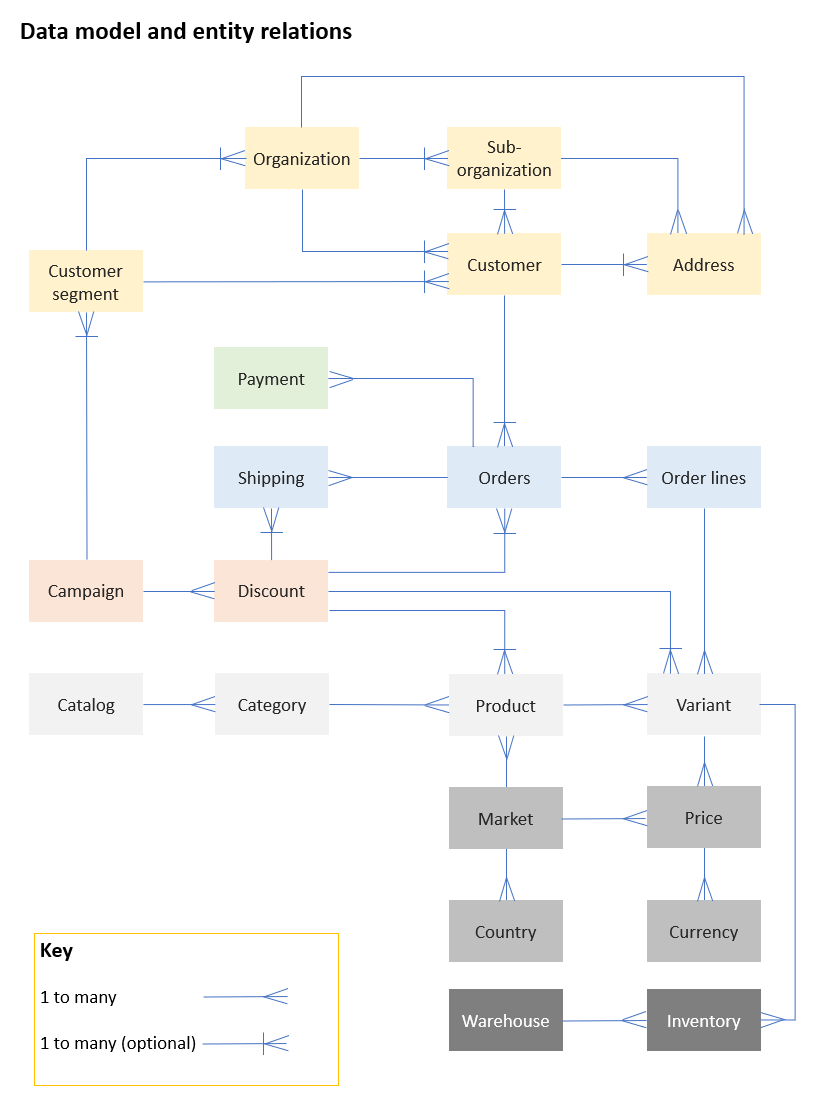Optimizely Commerce Connect system overview
Describes the subsystems and data model for Optimizely Commerce Connect 14, part of the Optimizely platform.
Subsystems
Optimizely Commerce consists of an ecommerce engine with a number of subsystems, together with Optimizely CMS for creating and displaying product content on the front-end website.
The following are the main subsystems of Optimizely Commerce:
- Catalogs – Define catalog schemas, import existing catalogs, and define price lists.
- Marketing and campaigns – Create campaigns, custom discounts/promotions, and define policies used for promotions.
- Orders – Manage orders, connect payment and shipment gateways, customize order workflows, and manage taxes.
- Customers – Create organization structures, set roles and permissions, and extend customer or organization objects.
- Markets – Define multiple markets for market-specific features.
Data model
Below is a data model of the entities in commerce and the logical relationships they have to each other. The 1 to many relationship means that for each 1 instance of an entity there are 1 or more other related instances. An example is orders and order lines, where for every order there is at least one order line.
The1 to many (optional)_relationship means that it _can be related but does not have to be related. A good example is customers and organizations. Customers do not have to be associated with an organization, so the relationship is an optional one to many between organization and customer.

See also Commerce Connect class library for the REST API service layer.
Updated 4 months ago
